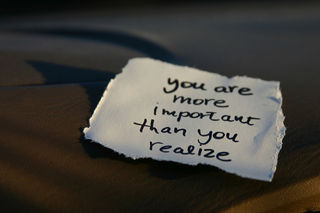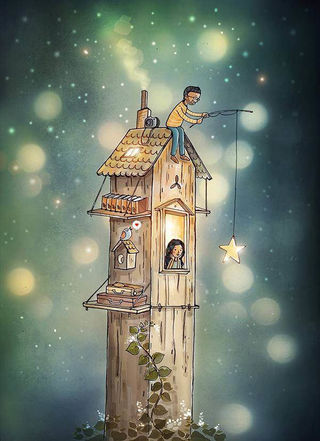The stories we tell ourselves matter. However, so often these tales that are so fundamental to who we are, are based upon just some of the truths from our complex and beautiful lives. When we change the narrative, we open new possibilities for our happiness and effectiveness and well-being. (Read more on the Narratives We Tell Ourselves, here.)
However, we affect other people’s narratives too.
Think back to a time when someone did something—offered you a kindness, or treated you in some manner—that changed you. Maybe it caused you to go into a different career. Maybe, for the first time, you saw a strength or talent you never knew you had. But somehow, what they said or did fundamentally changed the way you saw yourself. These “trigger moments” might be positive, or they could be hurtful too. Either way, we never know who is going to say that thing that matters, or when. It could be a client or a teacher or a neighbor. Most likely, when that person was saying whatever it was that altered the arc of your life, they had no idea.

Once, when giving a talk about these trigger moments, someone in the audience rose and spoke. He had been the director of a middle school choir. Voices cracking, masculinity straining to take root, none of the early-pubescent boys wanted to join. He would approach them individually, talk to them and try to convince them to sing.
This teacher told us that one boy he recruited stayed in touch long after he left the school. He went to senior high and college, and eventually invited his favorite teacher to his wedding. At the reception, the young groom pulled his choirmaster aside. “I don’t know if you knew,” he said, “but all those years ago, when you asked me to join the choir, things were difficult. I was having a hard time,” he said. “I had been thinking about taking my own life.”
There was a pause.
“And yet when you reached out, and showed an interest in me and let me know that I mattered in some way, that made all the difference.” No one in the room exhaled.
The teacher continued, “I wish I knew what I had said.” He told us. “I was just trying to get boys to join the choir.”

Hold one another’s eyes a little bit longer. Ask questions and listen for the things people don’t know how to say. Point to all the beautiful, wonderful and wondrous things in their lives and leave them better than you found them. We are all more than the stories we tell. You have the infinite power to make others see just how miraculous and beautiful they can be.
©2018 John Albert Doyle, Jr.
References:
For more beautiful and wonderful stories about how the little things people do, can have big, dramatic effects, see https://daymakermovement.com/
On the bad being ‘stronger’ than the good: In an extensively well researched paper, Roy Baumeister and his colleagues point out that “The greater power of bad events over good ones is found in everyday events, major life events (e.g., trauma), close relationship outcomes, social network patterns, interpersonal interactions, and learning processes. Bad emotions, bad parents, and bad feedback have more impact than good ones, and bad information is processed more thoroughly than good. The self is more motivated to avoid bad self-definitions than to pursue good ones. Bad impressions and bad stereotypes are quicker to form and more resistant to disconfirmation than good ones. Various explanations such as diagnosticity and salience help explain some findings, but the greater power of bad events is still found when such variables are controlled. Hardly any exceptions (indicating greater power of good) can be found. Taken together, these findings suggest that bad is stronger than good, as a general principle across a broad range of psychological phenomena.” Baumeister, Roy, et al. “Bad is Stronger Than Good.” Review of General Psychology, vol. 5, no. 4, 2001, pp. 323–370.
On it taking five good acts to undue one negative: “Couples who are happy in their relationship have a 5:1 ratio of positive to negative during conflict conversations and a 20:1 positive to negative ratio when just hanging out. Relationships have to be a very rich climate of positivity to feel good: lots of kindness, attention, interest in one another, affection, humor, good sex and so on.” – Drs. John and Julie Gottman.
Source Images:






Pingback: Changing the Narrative (Part 1) – Sean Doyle